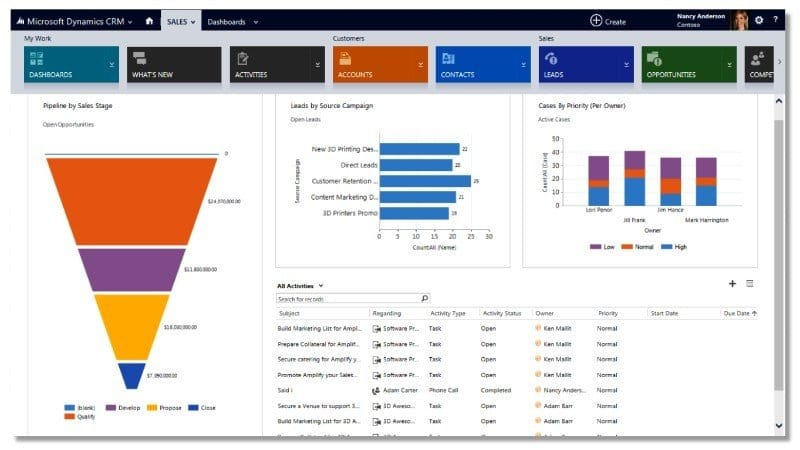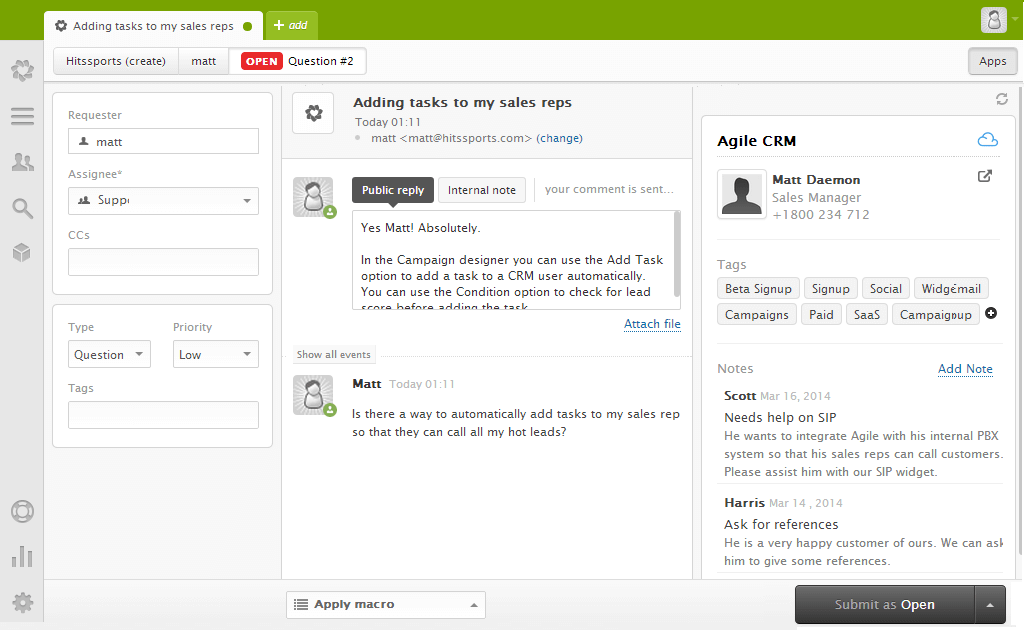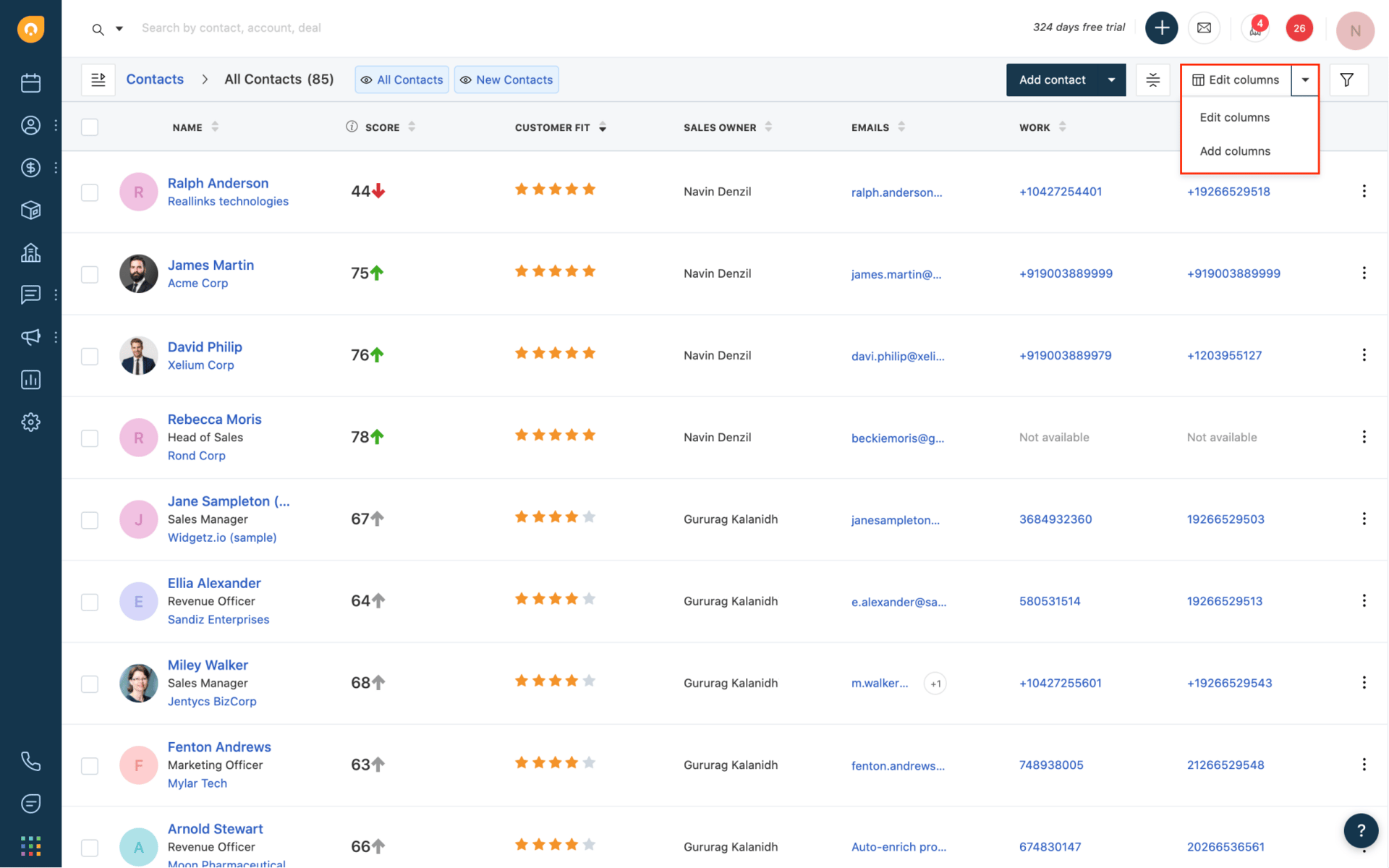Hi {{first_name | there}},
Choosing a CRM system is about selecting the backbone for your customer relationships, sales, and growth for the next decade. With millions on the line, the stakes are high. The right CRM can unify your teams, drive revenue, and future-proof your business. The wrong choice can lead to low adoption, fragmented data, and wasted capital. Here’s a clear, practical comparison of eight leading CRM platforms to help you make a confident, strategic decision.

1. Salesforce Sales Cloud: The enterprise gold standard
Best for: Mid-market to large organizations with complex sales processes and a need for deep customization.
Why it stands out:
Unmatched power and flexibility, with the largest enterprise app marketplace (AppExchange).
Einstein AI delivers predictive insights directly in the workflow.
Scales effortlessly for global teams and massive data volumes.
What to consider:
Implementation is a major project, requiring certified partners and significant resources. Licensing is complex and expensive, but you get the most powerful platform available.
Biggest risk:
Complexity can lead to low user adoption if the system is over-engineered or users aren’t properly trained.

2. HubSpot CRM Platform: The all-in-one growth engine
Best for: SMBs and mid-market companies seeking a unified platform for marketing, sales, and service.
Why it stands out:
Exceptionally intuitive interface drives high user adoption.
All-in-one platform means seamless integration across marketing, sales, and service.
Transparent pricing and moderate implementation complexity.
What to consider:
While HubSpot has scaled up-market, it may not match Salesforce’s depth for highly complex, global needs.
Biggest risk:
Outgrowing the platform as your business becomes more complex, which could require a migration down the road.

3. Microsoft Dynamics 365 Sales: The Microsoft ecosystem play
Best for: Organizations deeply invested in Microsoft 365, Azure, and Power BI.
Why it stands out:
Deep, native integration with Outlook, Teams, and Power BI.
Sellers can work within familiar tools while CRM runs in the background.
Highly scalable on the secure Azure cloud.
What to consider:
Implementation is complex and highly dependent on your partner’s expertise. TCO is significant but competitive with other enterprise platforms.
Biggest risk:
A poor implementation partner can derail the project, regardless of the platform’s capabilities.

4. Zoho CRM: The unbeatable value suite
Best for: SMBs and mid-market companies wanting a comprehensive, affordable business suite.
Why it stands out:
Zoho One license gives access to over 50 integrated apps, from CRM to finance and HR.
Eliminates the need for multiple point solutions.
Lowest total cost of ownership among major players.
What to consider:
While Zoho covers a lot of ground, it may lack the specialized depth of best-in-class competitors for certain advanced needs.
Biggest risk:
You may find some mission-critical features less robust than those in more specialized platforms.

5. Zendesk: The service-first champion
Best for: Organizations where customer support is a primary driver of revenue and retention.
Why it stands out:
Best-in-class support ticketing and omnichannel service tools.
Provides a unified view for support agents across all channels.
Scalable for both small businesses and large enterprises.
What to consider:
While Zendesk Sell offers sales CRM features, it’s not as deep for complex sales processes as Salesforce or HubSpot.
Biggest risk:
Choosing Zendesk for a sales-first organization may leave your sales team wanting more advanced features.

6. Pipedrive: The salesperson’s tool
Best for: Small businesses and sales teams needing a simple, visual pipeline tool.
Why it stands out:
Incredibly intuitive, visual pipeline interface.
High adoption rates among sales teams.
Easy setup and very affordable.
What to consider:
Pipedrive is a focused sales tool, not a full business platform.
Biggest risk:
For a large-scale investment, it’s risky to rely on a point solution that doesn’t unify marketing, service, and sales.

7. Freshworks: The modern all-in-one challenger
Best for: SMBs and mid-market companies seeking a user-friendly, affordable alternative to major platforms.
Why it stands out:
Clean, intuitive design and integrated suite for sales, marketing, and support.
Freddy AI provides helpful bots and insights.
Competitive pricing and straightforward implementation.
What to consider:
Freshworks is strong across the board but doesn’t have a single, standout differentiator compared to its competitors.
Biggest risk:
Choosing Freshworks without a clear, strategic reason why it’s better for your needs than the others.

8. Creatio: The process automation specialist
Best for: Mid-market and enterprise organizations with unique or complex business processes.
Why it stands out:
Powerful low-code/no-code platform for automating customer-facing workflows.
Highly adaptable for businesses with unique processes.
Scales well for process-driven organizations.
What to consider:
Success depends on having well-defined, mature business processes to automate.
Biggest risk:
Automating chaotic or undefined processes can lead to more problems, not fewer.
How to choose the right CRM for your business
Align with your business profile. Choose a CRM that fits your current and future needs, not just what looks good today.
Prioritize user adoption. The most powerful CRM is useless if your team doesn’t use it.
Evaluate integration and scalability. Make sure the platform connects with your existing tools and can grow with you.
Assess total cost of ownership. Look beyond the sticker price to include implementation, training, and ongoing support.
Understand your risk factors. Be honest about your team’s readiness and the potential pitfalls of each system.
Take note of a CRM's AI-powered features
Modern CRM platforms operationalize artificial intelligence in business and bring it into daily workflows. When evaluating any AI solution inside a CRM, look for capabilities that translate directly into business outcomes and measurable ROI.
Predictive scoring and next best action that improve forecasting and prioritize high-value accounts
Intelligent automation that routes leads, creates tasks, and triggers follow-ups without manual effort
Generative assistants that summarize calls, draft emails, and build proposals inside the tools teams already use
Customer health, churn risk, and upsell models that increase retention and expansion
Conversation and sentiment intelligence that reveals coaching moments and deal risk
Data unification and enrichment that reduce duplicates and decay to support cleaner analytics
Embedded analytics that power AI-driven business intelligence for leaders and frontline teams
A CRM decision shapes your customer experience and growth for years to come. Take the time to demo your top choices, involve your team, and seek references from similar organizations. The right CRM will be a catalyst for your digital transformation and long-term success.
Which one will you choose?
Organize demos, reach out to vendors, and empower your team to make an informed, confident decision. Your digital transformation starts with the right CRM foundation.
Much Love,
Matt
At Lighthouse, we love featuring fresh perspectives from our community of AI, tech, and innovation leaders. Got insights to share? Just reply to this email—I’d love to hear from you!

